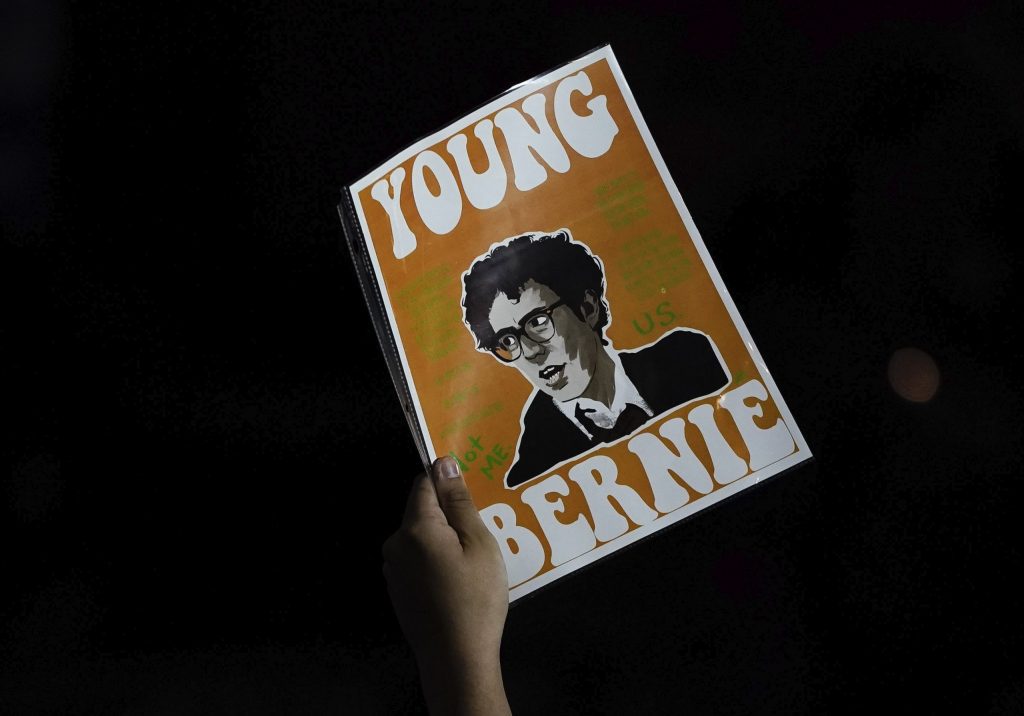California Shows Bernie Sanders Is Still A Wave of the Future

LOS ANGELES– California: the American launching pad of Richard Nixon, Ronald Reagan, same-sex marriage, state-sanctioned cannabis and the Coronavirus.
It’s here, and in neighboring Nevada, where the revolutionist Bernie Sanders notched scarce victories in his suddenly disappointing 2020 campaign. Joementum swept a crisis-weary nation east of the Rockies, but not here.
Well, not really.
Biden’s final total in the Democrats’ strongest stronghold was better than almost anyone expected — seven points down from the septuagenarian senator — evidence further of the former vice president’s fearsome surge. As the VP noted Sunday night, “I didn’t have any money,” and, “I still beat you,” Mr. Sanders.
“We were riding the crest of a high and beautiful wave,” Hunter Thompson wrote, not about the Sanders movement since 2015, but could have. “So now, less than five years later, you can go up on a steep hill in Las Vegas and look West, and with the right kind of eyes you can almost see the high-water mark—that place where the wave finally broke and rolled back.”
For Bernie, California is as far as the tide came in.
Why here, in America’s most opulent state? You may as well poll the court of Versailles.
The rationale for those outside the palace walls, in LA’s Skid Row or SF’s South of Market, is self-evident. For those inside them, such as Silicon Valley’s man on the Hill, Rep. Ro Khanna, it’s trickier.
Khanna, a rockstar of foreign policy restraint in Congress, was an early Sanders backer, a curious endorsement of a figure who pledges to undo the tech oligopoly, the lifeblood of the powerful in his district. An uninitiated perspective might cry opportunism and maybe that’s right. Now-forgotten coverage of Khanna’s first, failed run for Congress in 2014 paints a clear picture. Denizens of the Valley, it was reported, were licking their chops, eager to be rid of grizzled, union hack Mike Honda.
Honda, the incumbent, won in ‘14, but Khanna got the last laugh two years later, in a year short on laughs for the left wing. In Khanna’s initial race, to read coverage of Facebook entrepreneur Sean Parker’s zeal for the candidacy is to read dispatches — as Pat Buchanan notoriously wrote of Richard Perle meeting George W. Bush — of Fagin encountering a young Oliver Twist.
But maybe that reportage got it wrong. Or, perhaps, like so many these last five years, Khanna had a change of heart.
The most compelling interpretation: California has made peace with its magisterial wealth, but also its misfits. All but literally, she’s learned to love the war.
To deny that California is working, to argue it’s blighted, now benighted is to deny away Facebook, Twitter, Hollywood, the Marine Corps, ninety-percent of the country’s wine production and Ocean Beach; it’s to ignore life on the gold coast.
California “used to be the paradise for the common man,” Michael Anton, then of the National Security Council but, of course, more than that, told Politico in 2017. “It was cheap, safe, clean. It had space. It couldn’t last.” Indeed, the tale of Republican refugees from this place is a story bordering on cliche, unmasked tonight in the Nevada suburbs, Phoenix haciendas and the Washington outposts of Steve Bannon, Stephen Miller, Alex Marlow and Tucker Carlson.
Orange County, home of Ryan Atwood and the Reagan Library, went Democratic for the first time in relevance two years ago.
For now, the state’s jungle primary has helped jujitsu the Right into irrelevance. But something else changed. That middle class? In the age of climate crisis, felt perhaps more acutely here than anywhere American, it’s the snows of yesteryear: gone from this earth.
It’s a place living in sin. Scoff, but that doesn’t mean it’s sort of fine. For the moment.
A Sanders-style ascension would be an unlikely deathknell for big business. But twenty-five years after the declared end of the era of big government, that at least, is in the offing.
It’s already come to pass on the country’s leftmost shores. Squint just barely at the dailys and a story about Pacific Gas and Electric can read like a report on Petrobras. “Homelessness: it could happen to you,” reads a sign on Santa Monica Boulevard. Life is a fait accompli, in this rendering, pointless to puncture the powerful, doomed to challenge the decision-making of the challenged.
As Corona careens into North America, a Niagara comes into view. If they’re smart, conservatives, or libertarians, or nationalists, or whatever, will seek parley.
This country can still avoid true decadence. Perhaps there should be borders, perhaps America should make stuff, perhaps the Middle East is a massive, indefensible distraction, and perhaps China, the undeniable genesis of the virus, is a problem.
Radical deglobalization, as Peter Thiel points out, has begun in earnest, like it or not.
Early signs are promising as erstwhile smoothbrains Marco Rubio, Tom Cotton and others have shown command throughout the crisis, responding to potential economic devastation not seen since the Depression.
The basic pitch? As Conrad Black wrote in his biography of the man, the real legacy of Franklin Roosevelt? Perhaps, he saved capitalism. As evidenced by a socialist’s rise in America’s most cash-flush state, there are plenty who are perfectly willing to throw it aside.
My high school graduating class, 2009, turns thirty this year. Ideological combat aside, we’d like to have our Thirties. “I’m dealing with a f**king global crisis,” an incensed Sanders told CNN Wednesday.
That’s for sure, Mr. Senator.
Comments